
For Swami Nateshananda Saraswati, 70, shooting a basketball remains a meditative practice. In his purvashrama— the life before becoming a sanyasi of Advaita philosophy—he was N. Amarnath, a basketball star who represented India in the 1980 Moscow Summer Olympics and led the Indian team in the 1982 Asian Games. In his prime, scoring field goals brought him immense joy. Today, his ultimate goal is moksha or liberation and oneness with Brahman, the supreme cosmic power in Advaita.
Being at the ‘kuticaka’ (first) stage of sanyasa, Saraswati lives alone in a flat in Coimbatore. The colour saffron dominates the decor, including the bedsheets. THE WEEK visited him on the eve of his trip to Rishikesh Dayananda Ashram ahead of Guru Purnima. “Kuticaka sanyasis live in one place, just abiding in the knowledge,” said the Olympian, who embraced the sanyasi life a year after his wife’s death in 2018.
Saraswati believes that destiny has always taken him on routes he had never expected or foreseen. “There are many talented players who played for India. But how many could become captain,” he asked. “Destiny had that for me, even though my parents named me after the legendary cricket captain Lala Amarnath, hoping I, too, would be an Indian skipper one day.”
Esta historia es de la edición August 04, 2024 de THE WEEK India.
Comience su prueba gratuita de Magzter GOLD de 7 días para acceder a miles de historias premium seleccionadas y a más de 9,000 revistas y periódicos.
Ya eres suscriptor ? Conectar
Esta historia es de la edición August 04, 2024 de THE WEEK India.
Comience su prueba gratuita de Magzter GOLD de 7 días para acceder a miles de historias premium seleccionadas y a más de 9,000 revistas y periódicos.
Ya eres suscriptor? Conectar
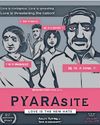
POSTERS OF PROTEST
Appupen is a cartoonist who has published a few graphic novels, the latest being Dream Machine, about how AI can be a great 1 tool for an! authoritarian regime.
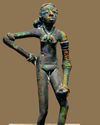
CLASH OF THE CIVILISATION
Even as the discovery of the Indus Valley Civilisation completes a century, some key aspects of this ancient culture remain mysterious, including its script. While the controversy over whether it was disrupted by an Aryan invasion may now be discredited, the debate over Indus ancestry and current links continues
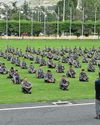
A PROVEN PATHWAY TO PEACE
Low-cost, easy to implement, immediate results, and scientifically verified.
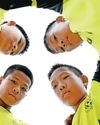
FOOTBALL GIVES THEM A KICK
For the children of Manipur and Mizoram, the great game is a way to a prosperous future

BATTLE FOR TOMORROW
Over the past decade, much has been said about India's potential as a leading global power.

THE TONGUE THAT TURNED
Why Greek survived while Latin and Sanskrit declined
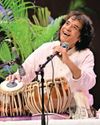
USTAD ZAKIR HUSSAIN 1951-2024: HIS MUSIC WAS THERAPY TO THE WORLD
Flautist and Grammy co-winner Rakesh Chaurasia remembers the maestro

The magic of indigo
I really can't imagine why more of us don't throng Goa each December for the Serendipity Arts Festival alone. The festival, in its ninth year now, has the entire Panjim town celebrating.

NEW YEAR.NEW HOPE
EQUITY MARKETS HAVE TURNED VOLATILE OF LATE. WHAT TO EXPECT IN THE NEW YEAR

Seeking middle ground in Middle East
The collapse of assumptions is like the end of the world-or worldview. We assumed conwith the 20th century. But wars in Russia-Ukraine, Gaza, Yemen, Sudan, Somalia and Lebanon prove us wrong. Western defence officials now raise the nuclear threat level.